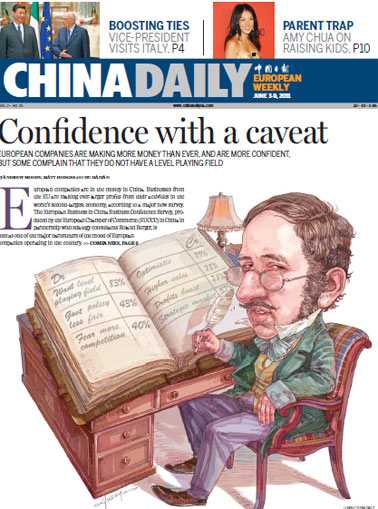Uniform approach needed on price increases
Updated: 2011-06-03 10:58
By Shen Hongbo (China Daily European Weekly)
The recent price hikes announced by Unilever should in no way be seen as an act of defiance against the Chinese government. The media should not exaggerate such actions as companies like Unilever have the right to decide on price hikes.
The Chinese government should not interfere with company decisions as consumers would always expect prices to remain at low levels due to government intervention.
Intervention in matters like price hikes is different from handling a market monopoly and should not be seen as a part of government measures to supervise the market.
The Chinese government has always tried to curb inflation with price controls. Though the motive for government intervention in the price hike issue is also in the consumers' interests, the logic does not hold much sway. In cases where prices of water, electricity, fuel and gas have been hiked there has been no instance of a government intervention so far.
Though the beneficiaries of a price intervention are many as it keeps prices at low levels, there will be many others who will feel the pain from such a move. Some of them could be employees of these products' companies, while others may be shareholders of these companies.
In a rising cost scenario, if the companies are not allowed to hike product prices, their profit margins could be squeezed. Although the government wants to maintain a fair market, it is actually creating an unfair ground for different enterprises.
In a market economy, prices sail with the market trends. Although sellers always want the price to be high and buyers want the price to be low, it will happen only in the ideal world. However, in reality, due to the differing qualities and manufacturing techniques, product prices will also vary.
A wise consumer who shops rationally should consider whether the price matches the quality, rather than search for only low prices.
As long as companies can compete with each other fairly in the market, and consumers are served well, there is no need for the government to intervene.
If the government is determined to use price controls to tame inflation, it should target all kinds of products instead of only a particular group.
But the truth is that in recent years, price controls have only focused on food and daily necessities such as instant noodles and shampoos. If these commodities see prices rises, the government fines the producer of these goods.
However, when it comes to real estate, whose prices have been increasing rapidly, the government just gives them warnings and negotiates with them.
The author is an independent economics commentator.
E-paper

Tapping into the future
Foreign companies are investing in China's water industry as many predict a growing profit margin.
Preview of the coming issue
Headhunters ride on growth
Commercial property rides wave
Specials

Cuisine central
London's Chinatown is helping diners appreciate full palate of Chinese food

Tying the knot
Danish couple's high-end macrame export business takes off in the mountains of Yunnan.

Truly a super woman
Li Yuchun first came to prominence in 2005 as the Super Girl winner, and since then has become an international star.
